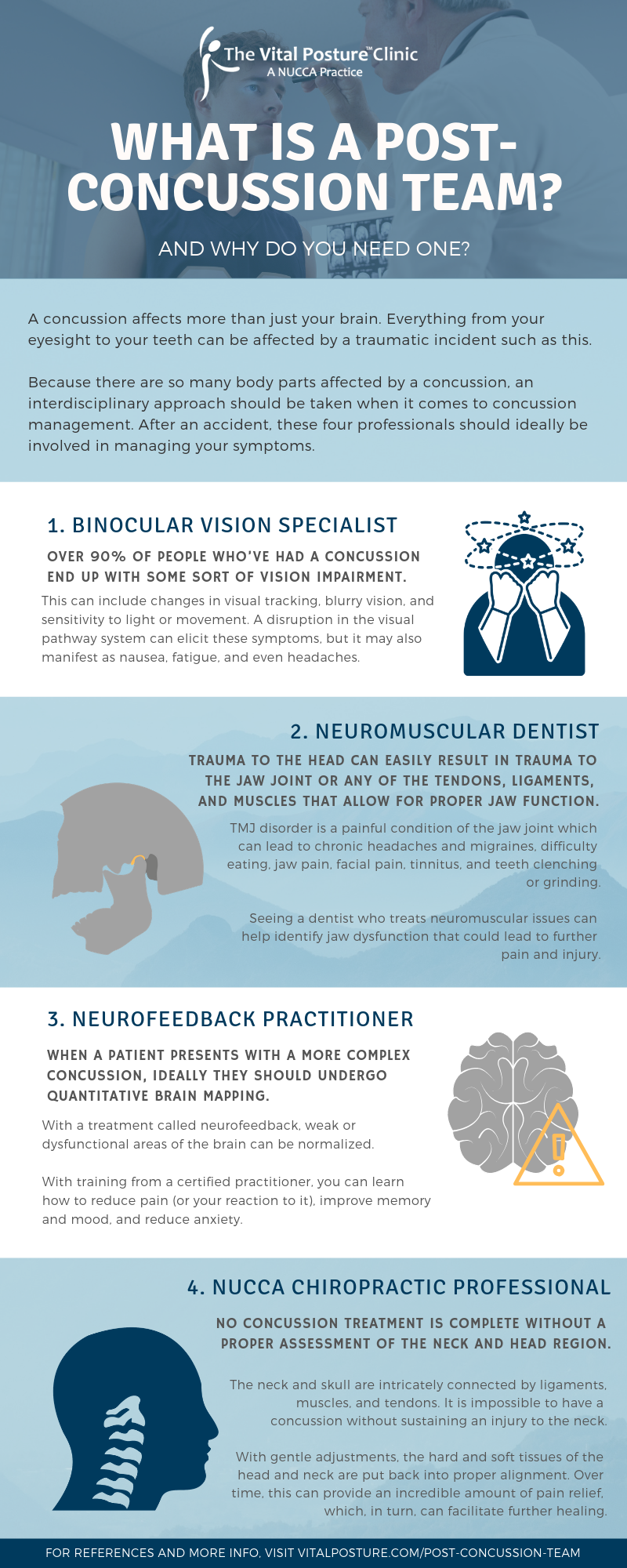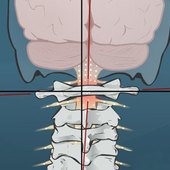
If a beloved friend or family member told you they had been in an accident, you’d encourage them to get help, right?
Of course, you would – who wouldn’t? We all want our loved ones to be healthy and pain-free. But sometimes when it comes to ourselves, it’s easy to push our own pain aside.
Unfortunately, many people don’t seek appropriate care after experiencing an accident that results in neck pain, headaches, or other debilitating symptoms. They think they should just grin and bear it because the trauma wasn’t “that bad,” or they think, “well, I only bumped my head—I couldn’t possibly have an injury as serious as a concussion!”
The problem is, that even what some people consider to be a minor accident can result in a concussion. If left untreated, even a mild concussion can be dangerous. Symptoms of a concussion can mimic symptoms from other types of injuries as well, so it is important to err on the side of caution and ensure that all potential areas of concern get assessed and addressed as soon as possible.
If you’ve been diagnosed with or suspect you have a concussion, you need to get help from a concussion management team.
Who plays a role on this team, and how can they reduce the effects of a concussion? Keep reading to find out more.

Dr. Mylène Hopf
NUCCA Chiropractic
The Vital Posture™ Clinic
Calgary, Canada

What is a post-concussion team and why do you need one?
Some people have been told that treatment for a concussion is simple, and all that is required is rest. Unfortunately, waiting to take action can result in long-term damage to multiple parts of your body and a much longer recovery time.A concussion affects more than just your brain. Everything from your eyesight to your teeth can be affected by a traumatic incident such as this.
Because there are so many body parts affected by a concussion, a multi-disciplinary approach should be taken when it comes to concussion management. After an accident, these four professionals should ideally be involved in managing your symptoms.
1. Binocular vision specialist
Over 90% of people who’ve had a concussion end up with some sort of vision impairment. This can include:- Changes in visual tracking
- Blurry vision
- Sensitivity to light or movement
2. Neuromuscular dentist
It isn’t uncommon for a patient to experience jaw pain after a concussion. Trauma to the head can easily result in trauma to the jaw joint or any of the tendons, ligaments, and muscles that allow for proper jaw function.Seeing a dentist who treats neuromuscular issues can help patients prevent further pain and injury that can result in TMJ disorder. This is a painful condition of the jaw joint which can lead to:
- Chronic headaches and migraines
- Difficulty eating
- Jaw pain
- Facial pain
- Tinnitus
- Clenching or grinding of the teeth
3. Neurofeedback practitioner
When a patient presents with a more complex concussion, ideally they should undergo quantitative brain mapping.The brain is multifaceted and powerful. With a treatment called neurofeedback, weak or dysfunctional areas can be normalized. If you’re experiencing chronic pain, panic attacks, headaches, or anxiety, this sort of treatment can teach you how to retrain your brain. This retraining helps address the way your body perceives stress in the system allowing you to become more resilient to things that may otherwise manifest as negative such as loud noises, crowds, excessive visual stimulation, or feeling overwhelmed because of a long to-do list or multiple tasks needing to get accomplished simultaneously.
Neurofeedback is a way of changing your brain waves. With training from a certified practitioner, you can learn how to reduce pain (or your reaction to it), improve memory and mood, and reduce anxiety.
4. NUCCA chiropractic professional
No concussion treatment is complete without a proper assessment of the neck and head region. It is impossible to have a concussion without suffering an injury to the neck, so it is important to get a thorough evaluation of the neck injury and have it addressed as promptly as possible.NUCCA chiropractic is a vital piece of the concussion management puzzle because it focuses on neck injury recovery.
Why NUCCA chiropractic is an integral part of concussion management
Why is neck injury recovery so important to victims of a concussion? It’s because people with post-concussion syndrome likely have an accompanying neck injury.The neck and skull are intricately connected by ligaments, muscles, and tendons. It is impossible to have a concussion without sustaining an injury to the neck.
A concussion—even a minor one—can be truly debilitating when it results in spinal misalignment, which is why NUCCA chiropractic treatment is such a vital component of concussion management.
With gentle adjustments, the hard and soft tissues of the head and neck are put back into proper alignment. Over time, this can provide an incredible amount of pain relief, which, in turn, can facilitate further healing.
Our team at the Vital Posture™ Clinic can distinguish between a variety of neck injuries, some of which mimic concussion symptoms but are, in fact, stemming from other dysfunctional areas. We can also help direct you to other appropriate resources so that no stone is left unturned with your recovery.
Ultimately, your concussion care wouldn’t be complete without proper long-term management. Our chiropractic team can educate you on how to stay healthy and reduce your risk of re-injury.
Symptoms of a concussion – signs it is time to see a concussion professional
How can you tell if you, a loved one, or someone in your care has sustained a concussion? Be on the lookout for the following symptoms. The following are signs that you need immediate concussion management:- Headaches
- Dizziness
- Fatigue
- Changes in mood (irritability)
- Insomnia
- Anxiety/Panic attacks
- Difficulty concentrating
- Ringing in the ears
- Blurry vision
- Sensitivity to light
- Sensitivity to sound
Get assistance if you experience neck pain after a traumatic event
Anyone who has been in an accident resulting in head trauma or neck pain should be evaluated for a concussion. Even if you don’t feel that what you’ve been through should be categorized as “traumatic,” your body might react differently.
A concussion is a very serious condition. Even when diagnosed with a mild one, you should engage with a concussion management team.
At the Vital Posture™ Clinic, you’ll find a team that’s well-trained in treating all kinds of conditions involving head and neck pain, including whiplash and concussion.
Don’t wait until your symptoms get worse. Take action now to reduce your pain and gain peace of mind with NUCCA chiropractic treatment.
Would you like to know more about working with a concussion management team? Contact the Vital Posture™ Clinic for an assessment. We’ll create a post-concussion treatment plan utilizing NUCCA chiropractic care to get you out of pain as soon as possible.



